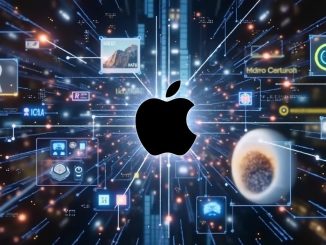
The global smartphone market in 2024 witnessed a significant rebound, with sales rising by 6.2% to an estimated 1.24 billion units, according to market tracker IDC. However, Apple Inc. (AAPL) experienced only a marginal growth of 0.4% in iPhone volumes, highlighting the intense competition from Android-based manufacturers, particularly in China and emerging markets. Despite this, Apple continues to lead in profitability, with its iPhones maintaining an average selling price exceeding $1,000, significantly higher than the $295 average for Android devices.
The recovery in smartphone sales was uneven, driven by pent-up demand in areas with lower market saturation and the introduction of more budget-friendly options by Android vendors. These factors have allowed Chinese brands to capitalize on the market’s growth more effectively than Apple, which is expected to see better performance in the following year.
The introduction of artificial intelligence (AI) enhancements by major players like Samsung, Apple, and Google has not yet sparked significant consumer interest or increased demand as anticipated. According to Nabila Popal, research director at IDC, consumer awareness and the development of must-have AI features are crucial to creating a market surge or “super cycle” that could drive sales.
Amidst this, companies like Xiaomi and Huawei are aggressively investing in proprietary hardware, including designing their own processors to navigate around U.S. sanctions and tailor their products for AI applications. Huawei recently unveiled a new smartphone with domestically produced chips, while Xiaomi is gearing up to launch its in-house semiconductor for 2025 models.
In China, where the smartphone market is intensely competitive, aggressive pricing strategies through discounts have been effective in boosting sales. However, the broader economic concerns in the country could impact future market dynamics.
Looking forward, IDC does not anticipate a return to pre-COVID sales volumes, predicting only low-single-digit growth in the coming years. This outlook is influenced by trends such as extended periods between smartphone upgrades, market saturation in developed markets, and a growing market for used smartphones, which all contribute to the overall stagnation in new unit sales.
This analysis points to a market where strategic innovation, particularly in AI and hardware autonomy, will be key for companies to maintain competitive edge and profitability, as reported by Bloomberg citing market tracker IDC.
- Bulenox: Get 45% to 91% OFF ... Use Discount Code: UNO
- Risk Our Money Not Yours | Get 50% to 90% OFF ... Use Discount Code: MMBVBKSM
Disclaimer: This page contains affiliate links. If you choose to make a purchase after clicking a link, we may receive a commission at no additional cost to you. Thank you for your support!





Leave a Reply